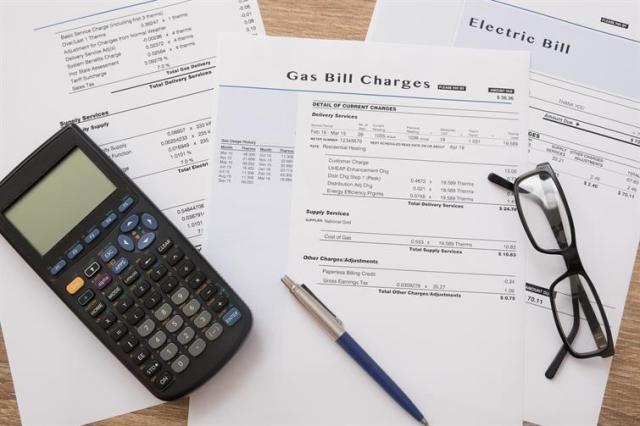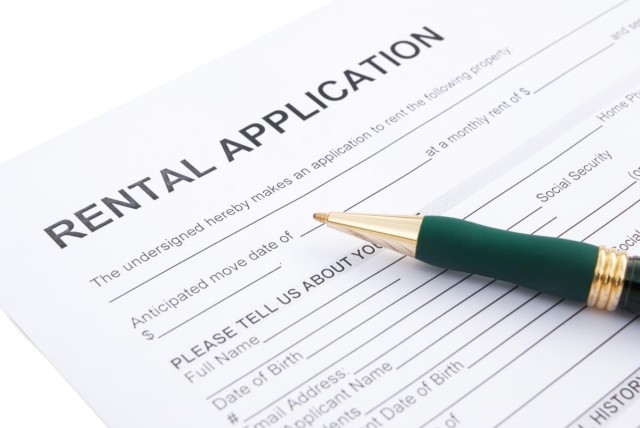Apartment living can be expensive, not to mention unpredictable. With the cost of living increasing in almost every major city in the US, you’re probably on the lookout for ways to cut back on spending and unpredictable bills. Maybe you’ve come across a listing for an apartment with utilities included—sometimes called an all bills paid apartment—and thought it sounded enticing, but you weren’t exactly sure what to expect. If you’re wondering whether these sought-after listings are all they’re made out to be, you’re not alone.
What Is a Utilities-Included Apartment?
With a utilities-included apartment, sometimes called an all bills paid apartment, your landlord is the one paying the utilities company for the services you use. With this type of lease arrangement, you’re wrapping up the agreed-upon utilities into one single fee, rather than putting your utilities in your name and paying exclusively by usage.
Most all bills paid apartments include electricity, water, heat, and trash services. However, every lease agreement is different, so be sure to check with your landlord. For instance, it may be practice to include heat in a utilities-included apartment in colder climates, but not so farther south.
Pros of a Utilities-Included Apartment
You won’t be surprised by bills.
With a flat rate that covers your utilities every month, you won’t be surprised by a stratospheric AC bill in the summer, or a hard to swallow heating bill in winter.
You’ll cut down on utility fees.
Since your landlord will be taking care of the utilities, you won’t have to worry about utility deposits, transfer fees, or any other penalty that should arise that isn’t your doing.
You won’t need a credit check.
The utilities won’t be in your name, so whether you have bad credit or no credit, an all bills paid apartment might be ideal.
You have free reign over the thermostat.
With your new flat fee, you can set your thermostat as low or as high as you want—without worrying about the effect on your wallet.
Cons of a Utilities-Included Apartment
You’ll most likely pay more in rent.
Most landlords or property management companies factor in the average cost of utilities for the rental and add that to the rent. This is how they offset the cost of offering an apartment with utilities included.
You might not control the heating and cooling.
If you’re living in a larger complex with multiple units, your landlord might be the one controlling whether the building is being heated or cooled. While you might be able to control the temperature yourself, there’s a chance you won’t get a say as to when the heat and AC come on throughout the year.
You won’t be building your credit.
Putting down a deposit and paying your utility bills on time helps you build credit. If you’re living in an all bills paid apartment, you’re foregoing this opportunity, which might make it harder to find an apartment the next go around.
You might build some bad habits.
Although you’ll probably enjoy the flat rate that comes with an all bills paid apartment, you might be in for a rude awakening when you move. Being able to set your AC as low as you want in the summer is a luxury that most people don’t get to enjoy.
What Happens if My Utilities Are Shut Off?
Having your utilities shut off in any scenario can be a serious headache, especially if the bill isn’t in your name. Don’t panic! As a tenant, you must be provided with a notice stating the specific date at which any of your utility services will cease. In the meantime, contact your landlord and try to find out more about the situation—if it was just a mistake or something more serious. If you’re worried that your services may be shut off, or if they already have been, be sure to check your state’s tenant laws to determine the best course of action in getting your utilities turned back on.
Additional Tips for Renting a Utilities-Included Apartment
Make sure you know what’s covered.
Ask the landlord or the rental company exactly what is covered in an all bills paid situation. Some agreements cover only electricity, while some also include gas or more.
Ask if there’s a limit on your utility usage.
Will you be charged overage fees if you go beyond a set amount of usage? This is something your lease should have outlined.
An apartment that offers included utilities is an appealing option for any renter, whether you’re on a budget or just looking for a few less headaches in today’s complicated market. If you’re looking for one of these all-inclusive offerings, make sure you consider the pros and cons and you’re clear one what utilities are covered.






